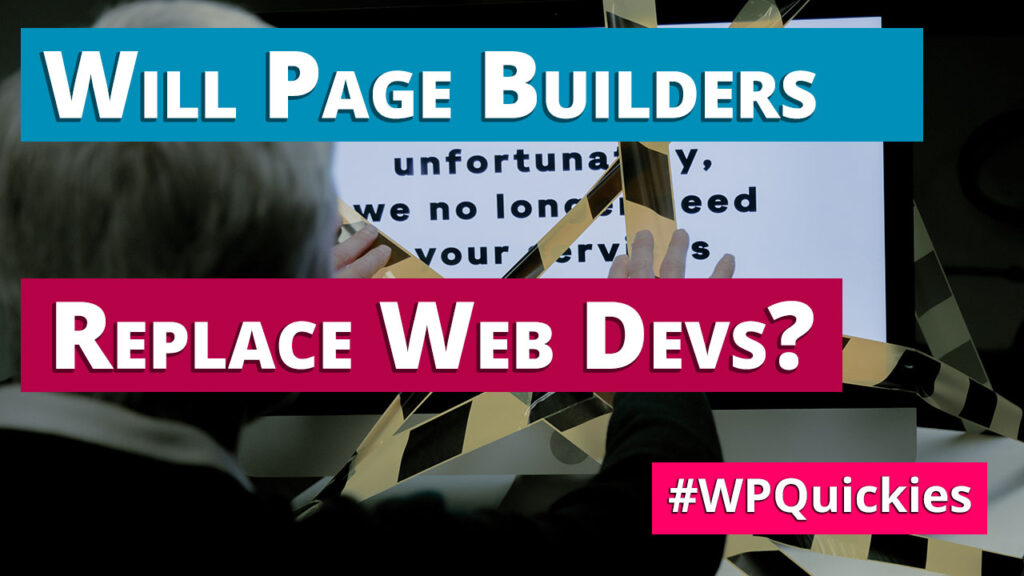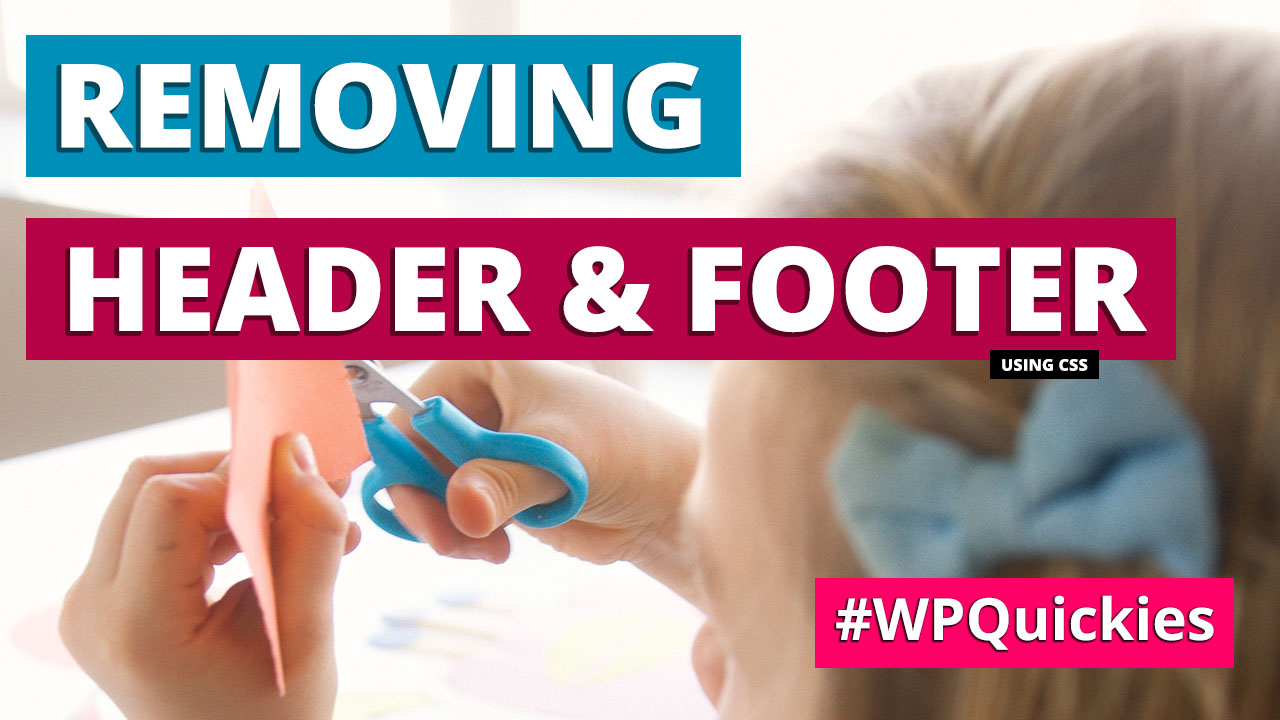Whenever a new or popular tool comes out, everyone asks this type of question, and I see it floating around some of the online forums and groups I help out.
Let’s discuss the points this question raises.
When WordPress started to shoot ahead as the most popular CMS, people asked, “Will WordPress web development?”.
Fast forward ten years, and that hasn’t happened. WordPress has evolved, and so has the development community and the opportunities WordPress provides.
- Plugins
- Themes
- Blocks
- Block Patterns
- Block Themes
- Full Site Editing
- Multisite
- WooCommerce
- Rest API
- Heartbeat
- Post Locking
- React
- Node / NPM
- JavaScript
- Docker
- LocalWP
Top 6 Page Builders
Here are the top 6 page builders in use with WordPress just now.
Some are recent additions, and others have been around for 5+ years.
- Elementor
- Beaver Builder
- Oxygen
- Divi
- Visual Composer
- Themify Builder
Arguments Against Hiring Web Professionals
What are some of the arguments that put website owners off the idea of hiring a web designer, developer or professional? Here’s a quick typical list of arguments used by previous prospects.
Cost
The number one argument I hear for not hiring a web designer or developer is of course, cost.
It’s not as simple as prices being too high, either.
When a website owner reaches out for multiple quotes, the range of costs they receive back will not make sense.
Some quotes will be in the thousands of dollars, others in the hundreds or even below for seemingly the same service.
I know this is an issue across all service-related businesses, but it’s still confusing to the end consumer.
We’ll revisit cost or “time savings” in a later slide.
Process Heavy
Questions, forms, surveys, road mapping, discovery sessions, wireframing, branding guidelines, change requests, and scope management are all essential processes in a successful web development project. Still, the website owner can sometimes see these as a hurdle to just getting started.
Timescales
The price may be right, but perhaps the right web professional can’t start the project for another month due to other commitments. Matching the website owners’ timescale for delivery can be a big issue, especially if there are key deadlines that need to be met.
Going Rogue
We know it happens often when a web designer or developer just disappears midway through the project. The fear is real and genuine concern to website owners.
Hidden Costs
It’s disappointing when you’ve paid much money for what you think is a complete product or service, only to discover that you have to pay even more to get things done.
For example, while SEO may not be a “hidden” cost, many website owners would expect a new website to appear in the search results for their target audience. It’s not an unreasonable expectation. Web professionals know how much time, effort and cost it takes to perform proper SEO, but perhaps a website owner doesn’t.
Then there are domain registrations, web hosting, and premium plugin subscriptions. They all add up and can look like hidden costs to a website owner if not adequately explained and outlined at the project conception stage.
Trust Eroded Trust
Suppose the website owner is looking for a website redesign. In that case, they may have been previously burned by one or more of the arguments we’ve just been talking about, to the point of having trust completely eroded and unwilling to hire again.
Why Do Website Owners Use Page Builders?
There are many reasons why website owners use page builders. The reasons include but are not limited to
- Quick results
- Code free
- Feature-rich
- Cost-effective (vs hiring designer/developer)
- Self Achievement (look, mom – I built this)
- Ease of Use
You can argue points for and against each of these reasons.
For example
“Quick results” – is that after you’ve trained, skilled up and are competent using the page builder of choice – how long did that take you?
“Code free” – but is the output the most efficient for Google and SEO, with your actual content buried in multiple layers of HTML element scaffolding?
“Feature-rich” – remember Microsoft WordArt and the many presentations that made your eyes bleed – lots of features aren’t necessarily good.
“Cost-effective” – you saved time paying a developer, but how many hours did you spend that could have been spent better running your business?
“Self Achievement” – are you a website builder or a business owner?
“Ease of Use” – perhaps, after how many hours?
Full Website Kits & Some Issues
Then there’s the evolution of full website template kits.
With a single click of a button, an entire professional website is created for you; colours, copy, images, navigation and a contact form.
This is a very attractive feature, and I know many website owners use this process to spin up a quick website.
While creating a whole website from one of these template kits is as easy as clicking a button, customisation is not as easy as the advertisements allude, especially for a non-web designer or developer.
Limited Designs
100+ designs may sound like a lot, but it’s not really. The templates cover a wide range of industries and niches, so you may only get one or two choices for your business. They may not be appropriate, or they could already be widely used.
Global Colours
Web designers and developers instinctively know to change the global site-wide template colours and adjust any HTML element colours, such as individual buttons or links, but that’s not how a website owner thinks.
I’ve had website owners call me up, distraught after spending hours going through all the buttons and links on each page, changing their colours individually.
Fonts
Fonts drive end-users up the wall and back over the other side. Similarly to global colours, global fonts can allude to website owners – “Why is this button in a different font to that one?“
Now there are issues with fonts on CDNs breaking GDPR laws in Europe.
Replacing Images
The site templates look lovely, but the images that come with them are stock images, and they all need to be placed.
The problem with this is that not all images are the same size and business owners are not great at resizing images to fit a space. Also, these template images have been chosen to blend in with the brand style of the template. That usually gets lost when business owners start uploading their own images.
Plus, there are many images and icons to replace across the whole site template. Very time-consuming.
Page Layouts
Website owners can struggle to replicate or change a page layout because they don’t understand HTML, CSS and web positioning styles. This can be a huge frustration factor when they can see a layout on the template but not be able to replicate or modify it.
Adding New Pages
Similar to page layouts, website owners can struggle to create new pages that match those created by the site templates leading to a clear mismatch which can affect brand and professionalism.
Page Builders: Cons
Other than what we have already discussed, what are some of the primary cons or concerns of using a page builder versus hiring a professional website developer or designer?
Site Speed
Most page builders are heavy-weight plugins. They have many features, which means lots of assets and code libraries to load in.
Using a page builder will generally slow down your entire site. Yes, you can optimise page builders and single pages, but in general, there will always be assets the page builder loads in just in case you want to use a particular feature.
HTML Structure
The code quality or HTML structure generated by a page builder will never match the quality of a professional website designer or developer.
To support all the possible features that a page builder offers requires that certain structures or scaffolding be put in place which may not be needed.
This can increase the page load time and interfere with SEO results if search engines can’t properly determine what is content and what is scaffolding.
Learning Curve
There will always be a learning curve if you choose a new tool. However, modern page builders are complex beasts with many moving parts, features, options and settings.
Due to their complexity, page builds come with their bugs, issues and constraints, which may stump new website owners.
Feature Overload
I always have a pencil and a pad of scrap paper on my desk, so I can quickly get ideas out of my head. I don’t want to spend time figuring out which application I want to use or which colour or font face to use.
Page builders come with hundreds of features and options, which can be overwhelming for new website owners there’s an urge to use everything because 1) it’s there and 2) you paid for it, right?
Migration
Page builder developers don’t make it easy to migrate your content to another platform.
There are, of course, business and technical reasons for this, but the fact remains that if you decide to migrate your site away from your chosen page builder, you’re going to have a hard time extracting content and replicating the design elsewhere.
End Quality
Page builders make it very easy for Joe Bloggs to create an entire website. However, there are skills involved in web design and development that a page builder cannot help with.
Branding, design, marketing, security etc. The overall end quality of a DIY page builder website will never match that of a professional website designer or developer.
Web Designer/Developer: Pros
What are the pros of hiring a web designer or developer over using a page builder and building a DIY website?
Online Strategy
A professional web designer or developer usually focuses on the overall online strategy or the big picture. How will your business website fit in with your marketing and content strategy and your other social media marketing?
A website shouldn’t be a separate stand-alone entity – it should be an integrated part of your overall business strategy.
Better UI and UX
The training and experience that a web professional brings should translate to a better user experience for your website users. That can lead to the increased time spent on the website, more interaction and an increase in leads and conversions.
Problem Solving
Building a website is usually not a straightforward process for beginners. Having a web professional at hand to solve any technical issues that arise is worth their weight in gold.
Connecting lead forms with CRMs, setting up payment gateways, dealing with order problems and extracting critical business data from a website all require a significant amount of technical knowledge that any professional web designer or developer should have.
Attention to Details
The end quality of a delivered website project from a professional should far exceed any DIY job, and your customers will thank you for that. A harmonious design and user experience all help towards the website’s quality of visitors, leads and prospects.
Unique To Brand
Many new website owners will use page builder templates or site kits to quickly spin a website up. However, designs are limited and generally look similar to other websites in your niche or industry.
A professional website designer or developer will deliver a website that matches your unique brand. Not just a copy of your competitors but something that is uniquely yours.
Time Savings
The most important pro for hiring a professional designer or developer for your website project is time savings.
You are a business owner, not a web designer or developer. The time you spend running your business is worth more than trying to spin up a website.
If you multiply your hourly rate by the average time to create a basic brochure website, about 6-8 weeks or 300+ hours part-time, how much would you be paying yourself during that period?
Even at minimum wage, that would equate to around $6,500, and I’m sure you’re not working for minimum wage in your business.
Summary
That leads us to the central question of the talk today. “Will page builders replace web designers and developers?”.
In my opinion, no. Not yet, at least.
There will always be prospects looking for a done-for-you service, a high-quality product and willing to hire and engage with a web professional.
What are your thoughts?
#WPQuickies
Join me every Thursday at 1 pm Sydney time for some more WPQuickies – WordPress tips and tricks in thirty minutes or less.
Broadcasting live on YouTube and Facebook.
Suggest a #WPQuickies Topic
If you have a WordPress topic you want to see explained in 30 mins or under, fill out the form below.
https://forms.gle/mMWCNd3L2cyDFBA57
Watch Previous WPQuickies
-

How To Reduce TTFB and Improve Page Load Speed
-
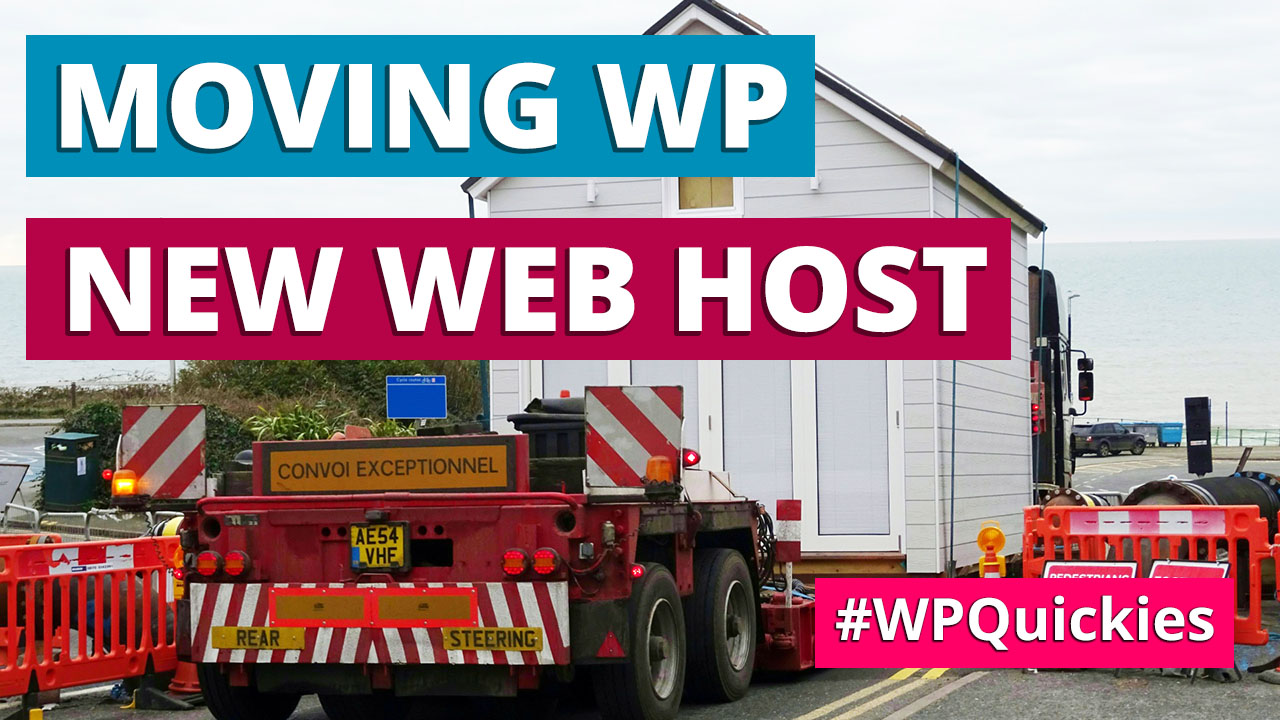
How To Move WordPress To Another Web Host – WPQuickies
-
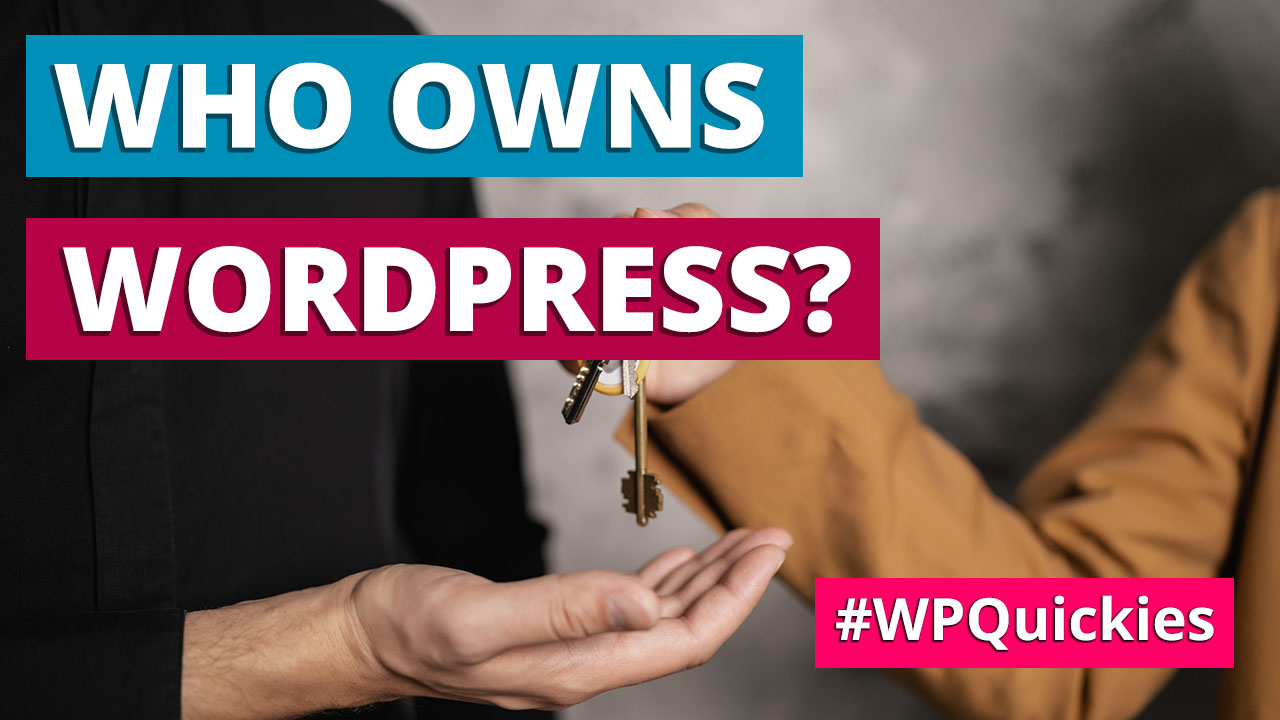
Who Owns WordPress? – WPQuickies
-
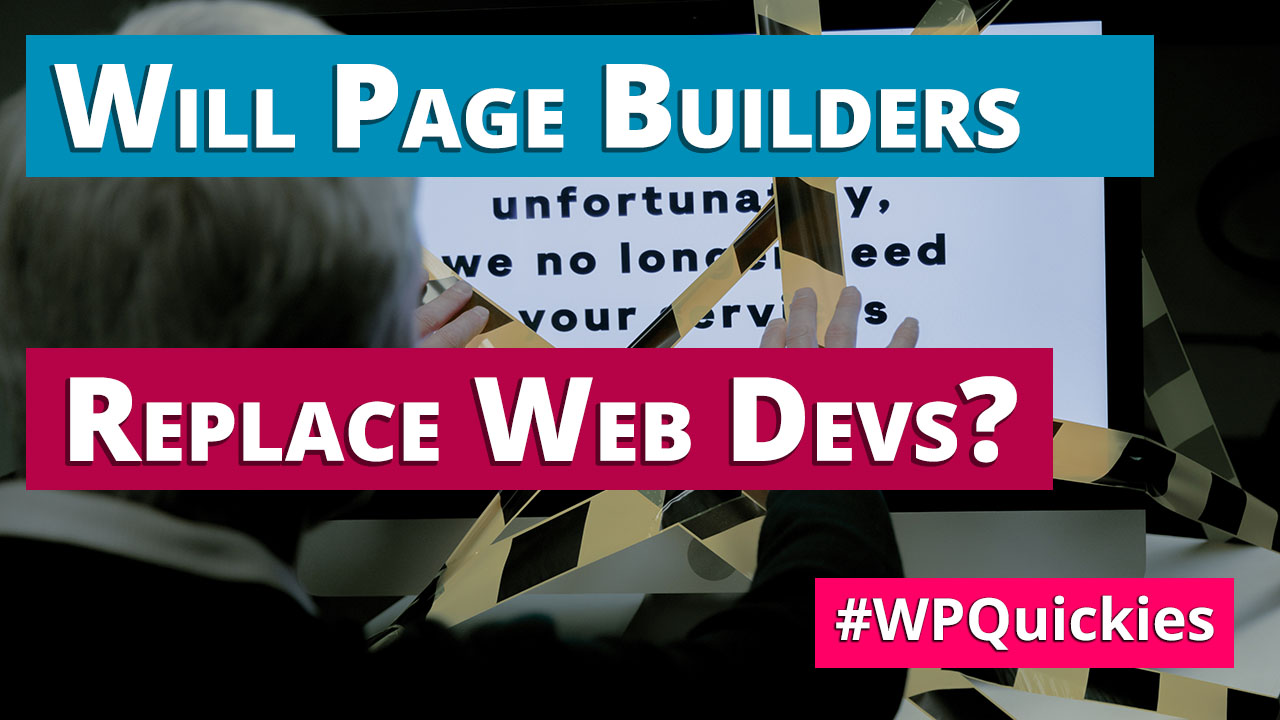
Will Page Builders Replace Web Designers & Developers? – WPQuickies
-
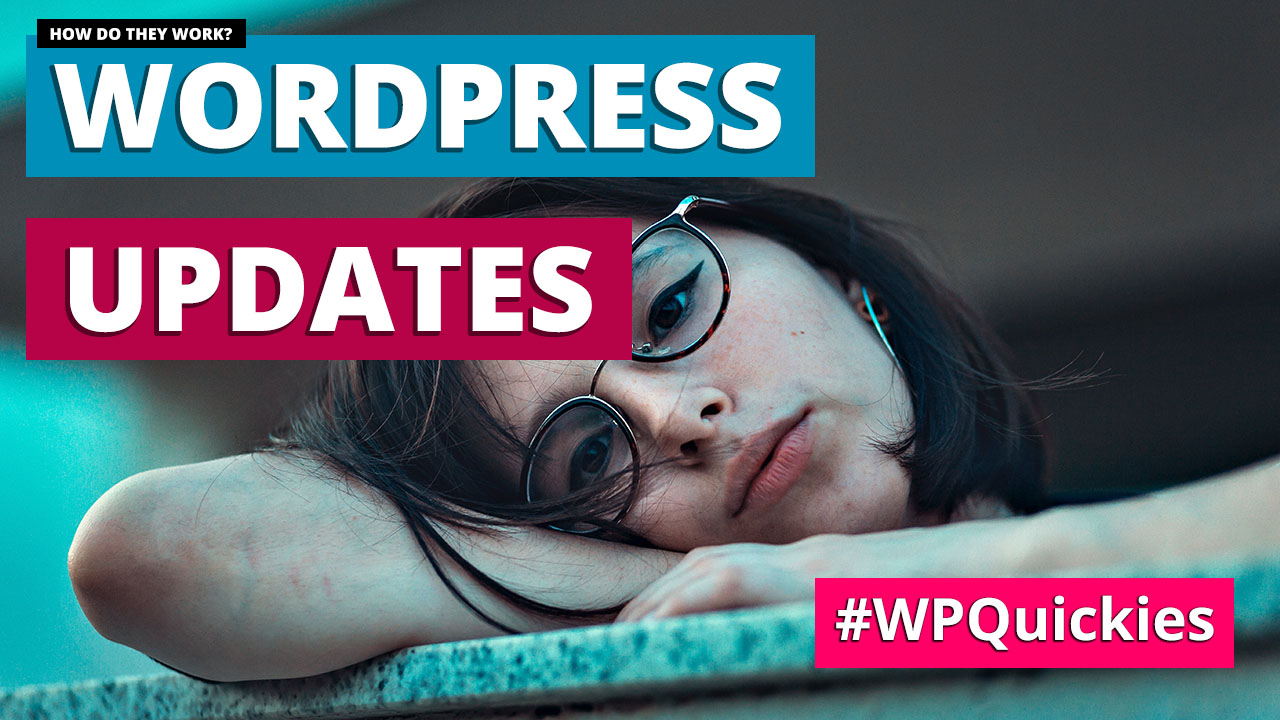
WordPress Updates: How Do They Work? – WPQuickies
-

WordPress Slugs What Are They & How To Change Them – WPQuickies
